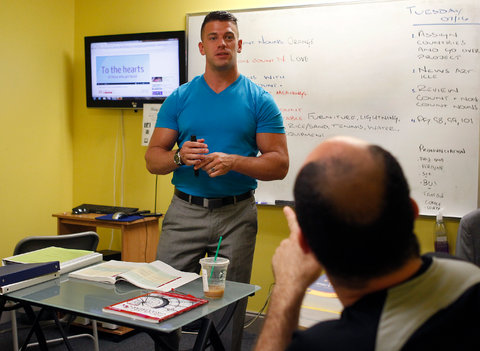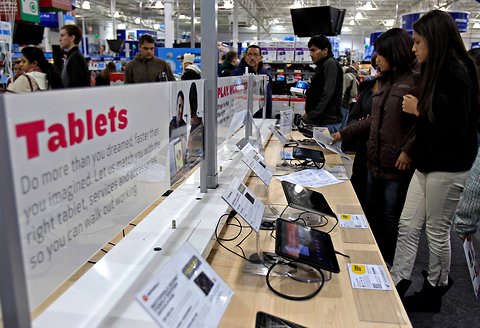 Tami Chappell for The New York Times Charles Wells, who teaches English as a second language in Atlanta, says he wishes he had chosen a major other than geography.
Tami Chappell for The New York Times Charles Wells, who teaches English as a second language in Atlanta, says he wishes he had chosen a major other than geography.
In my article Saturday on the job prospects of recent college graduates, Charles Wells, who got a degree in geography in 2011, says he wishes he had chosen a different major, an issue that seems to comes up every time I talk to students and graduates.
These conversations, surprisingly, lack any reference to advice from career counselors or professors about the majors that employers are interested in. In fact, only one person I’ve interviewed, a young dental assistant featured in an article about men who go into traditionally female-dominated professions, has ever mentioned getting such advice. Kudos to his high school guidance counselor who told him, correctly, that health care fields were a good bet.
And even though students seem much more conscious, in this economy, of their prospects after graduation, there is little evidence that career counselors are helping by making sure they know which college degrees have currency in today’s job market. More than a third of college graduates say they regret their choice of major, as my colleague Catherine Rampell has reported. Yet one career services director interviewed as I researched the article told me that she actually discourages students from thinking too much about the job market, out of concern that they will end up in a career that does not make them happy in the long run.
This is not to say that people should no longer study linguistics, say, or music, or pursue their passion. But it seems reasonable that they should make their choice with their eyes open as to how their résumés will be received. Under 10 percent of graduating college seniors ever talked about their choice of majors with a career counselor, according to a study this year by the National Association of Colleges and Employers. Almost half choose without discussing the matter with anyone on campus.
“If they discuss their choice of major with anyone it is with an academic adviser – someone who will focus on course requirements for the major and perhaps probe the student’s academic interest in the subject but will not likely bring up potential career consequences,” wrote Edwin W. Koc, the director of strategic and foundation research for the association, in an e-mail to me. “Most schools are not currently structured to provide integrated academic/career guidance to students. Only 22 percent of career centers are part of academic affairs and only 28 percent report having a role in academic advising.”
There has been some hand-wringing over a newly approved plan in Oregon, known as Pay It Forward, in which students pay no tuition to attend college but are charged a percentage of their salary afterward. Some have complained that students who earn more will end up paying more. But there’s a corollary to that: maybe colleges will be motivated to make sure their students know which majors are most likely to bring in a paycheck.
“That’s one of the interesting consequences of Pay It Forward, and one that would be of benefit both to the student and the institution,” said John R. Burbank, the executive director of the Economic Opportunity Institute and the originator of concept. “They become, both of them, more purposeful in determining what the student would like to do and making sure they have the skills to do it.”
Article source: http://economix.blogs.nytimes.com/2013/07/22/college-counseling-and-job-prospects/?partner=rss&emc=rss



